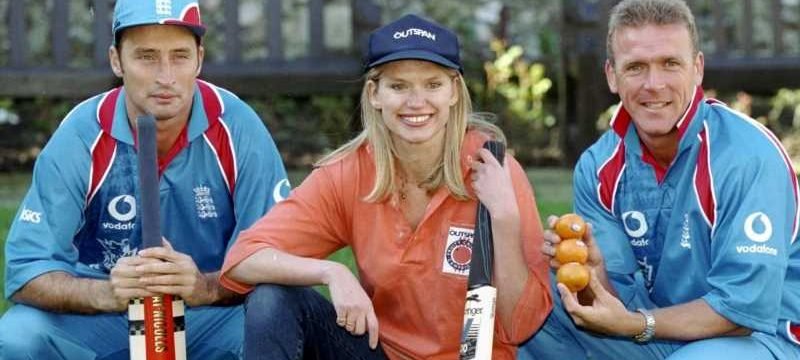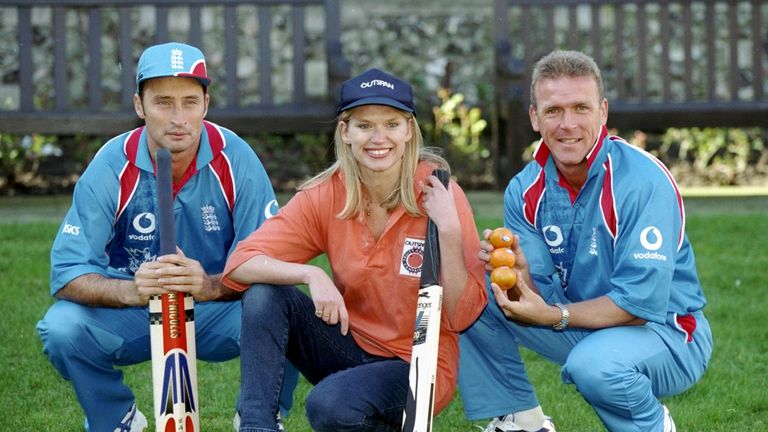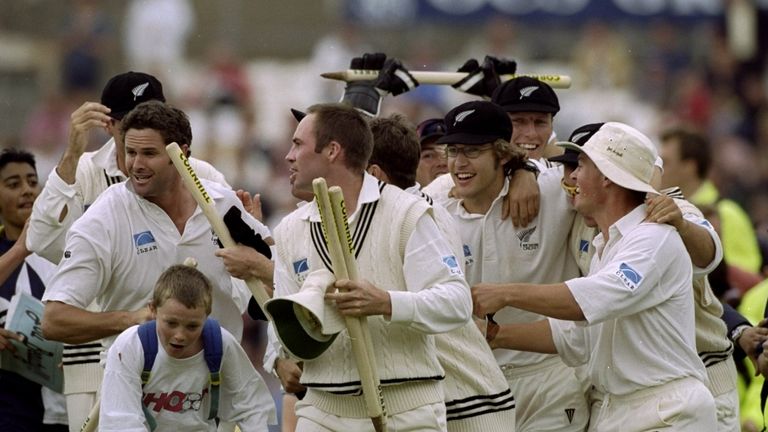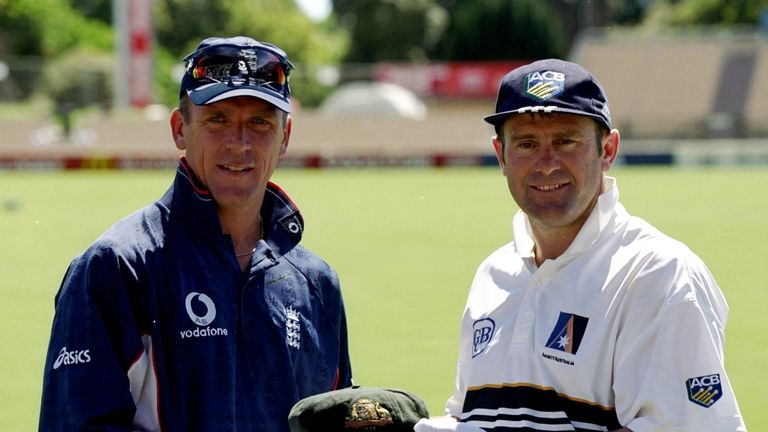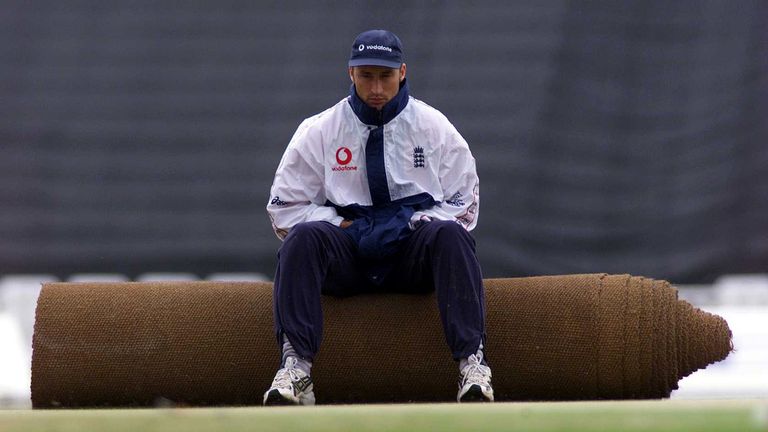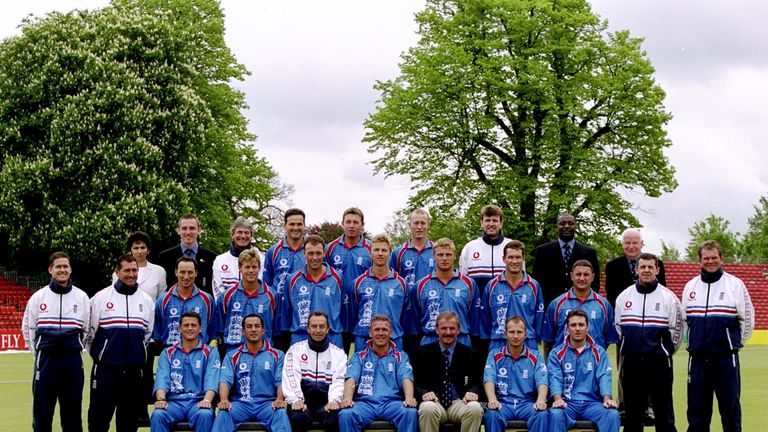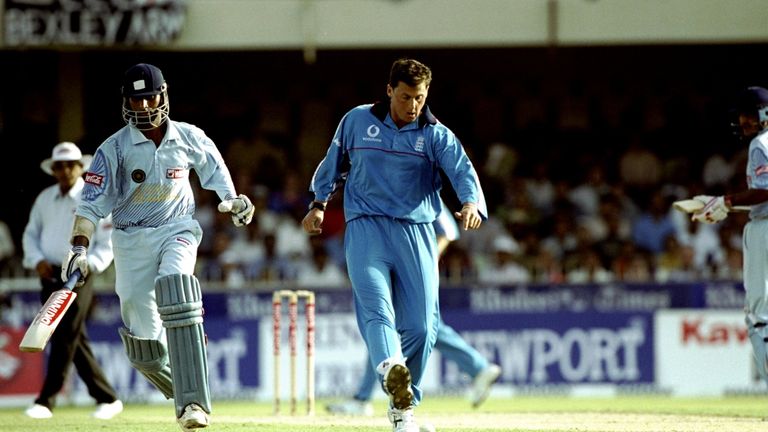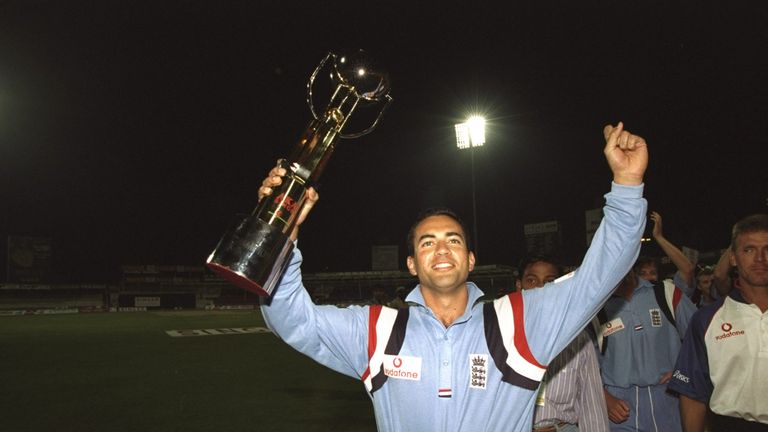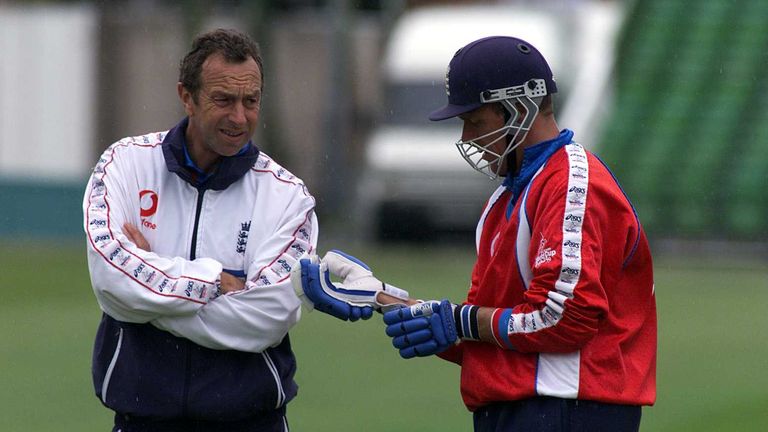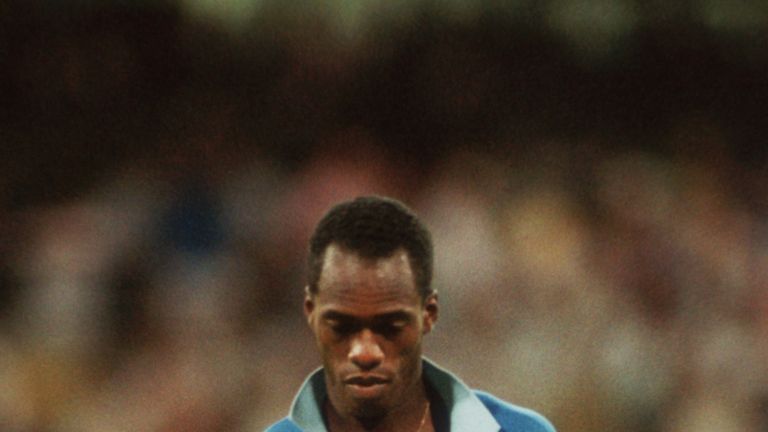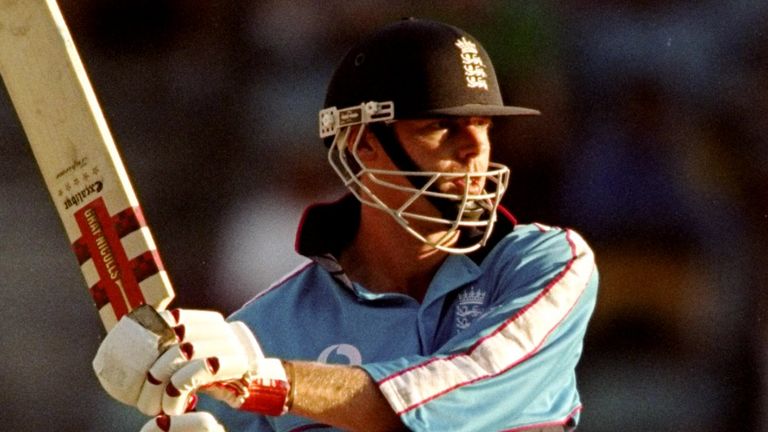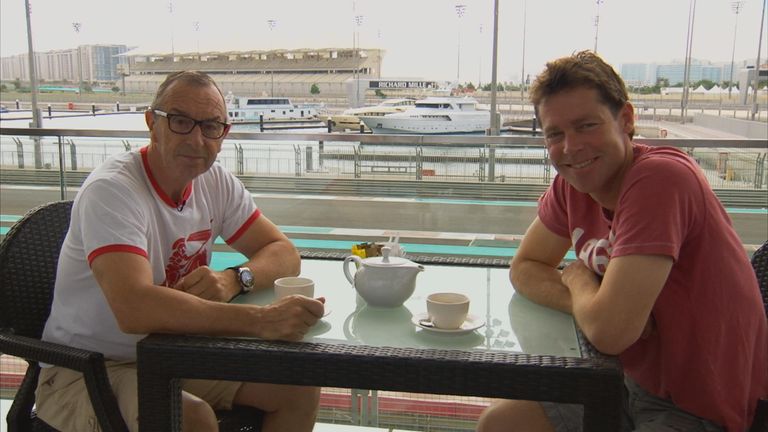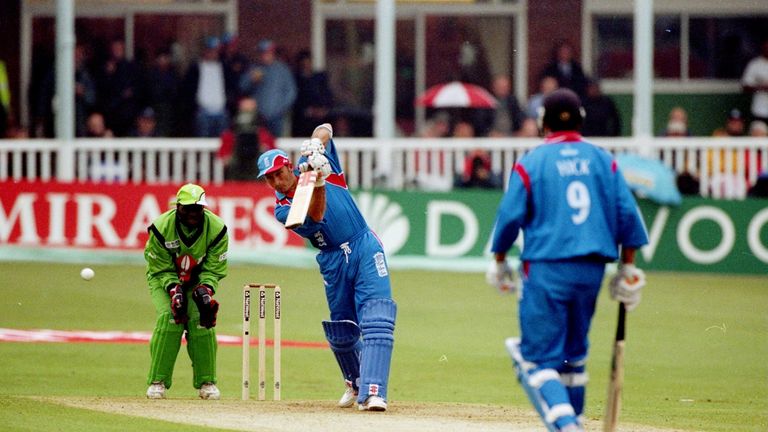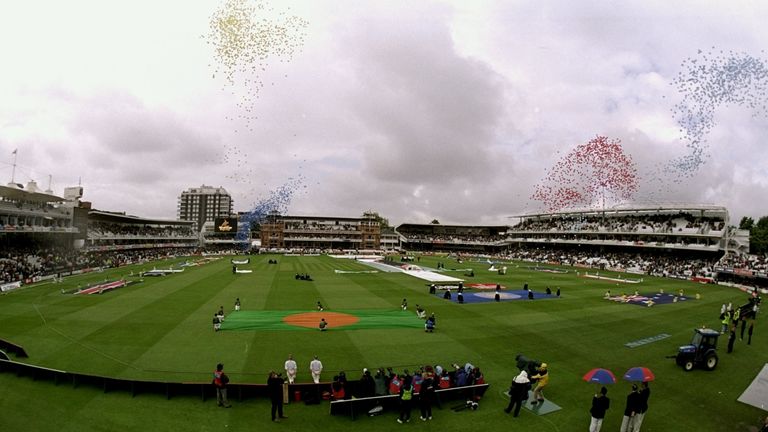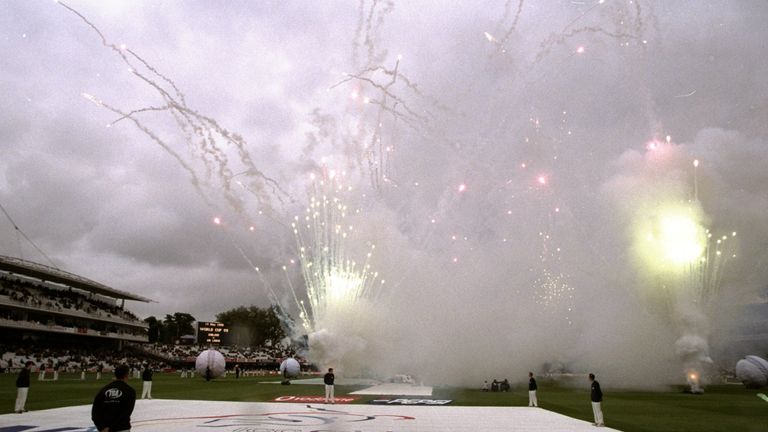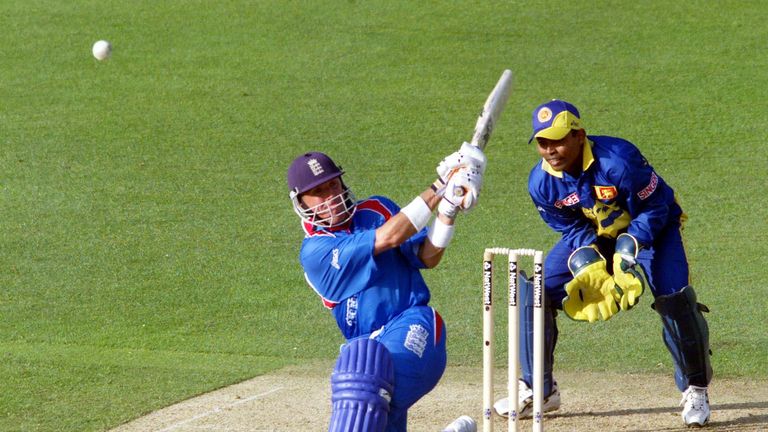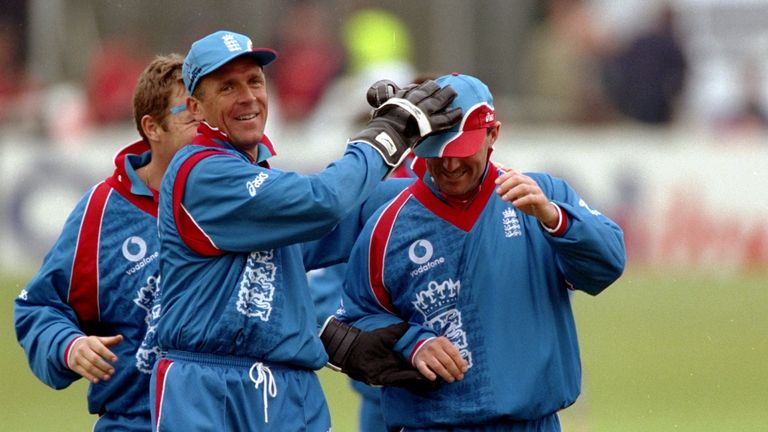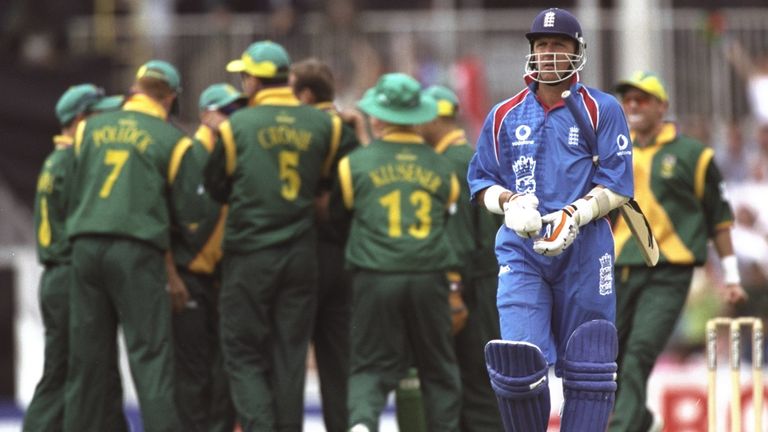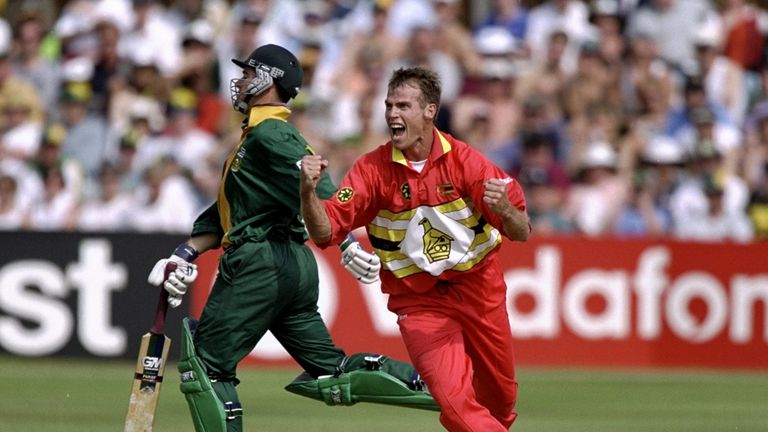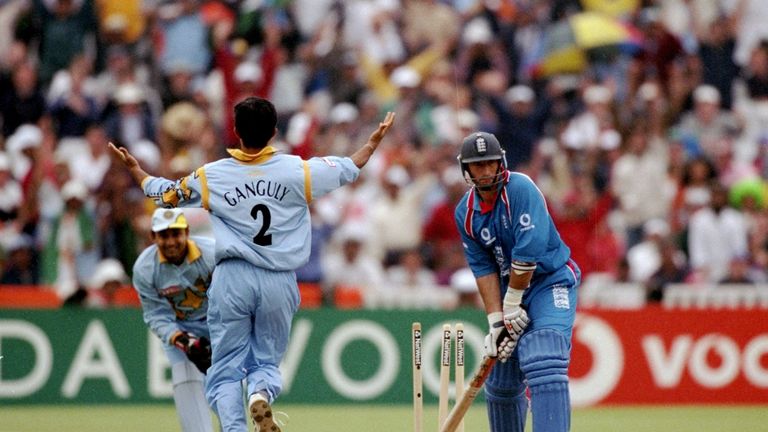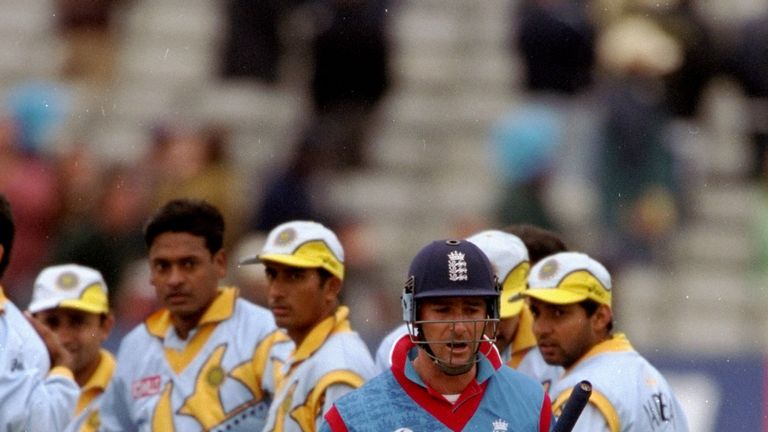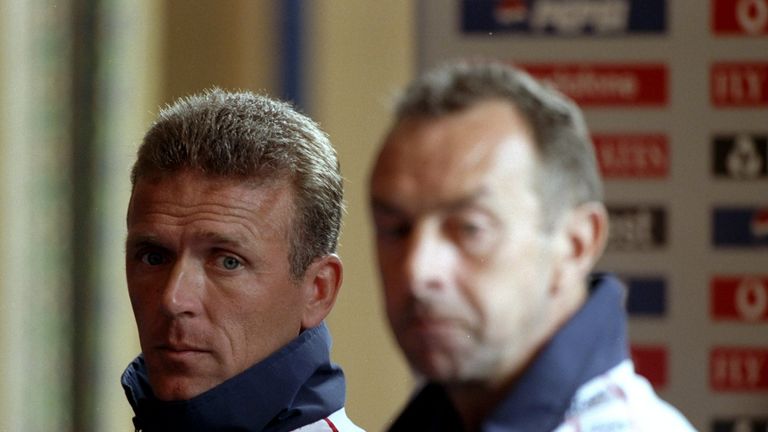England’s Cricket World Cup campaign gets underway on Thursday, May 30; exactly 20 years to the day on from an embarrassing group stage exit when last hosting the tournament in 1999.
How times have changed with Eoin Morgan’s men rightly ranked No 1 in the world and tipped as pre-tournament favourites ahead of this summer’s edition.
England vs S Africa
May 30, 2019, 9:30am
Live on
England’s efforts in 1999, meanwhile, were marred by a farcical opening ceremony, poor preparation, contractual disputes and selection issues – culminating in elimination the day before the official tournament song came out.
Here, we look back on that summer of ’99, with contributions from some key cast members – captain Alec Stewart, Sky Sports’ Nasser Hussain and David Lloyd, then England head coach.
Contract disputes
1999 proved to be a watershed moment in English cricket.
England’s failure at the World Cup was followed up with a 2-1 Test series defeat at home to New Zealand to slip to the foot of the world rankings.
By March of 2000, England named their first centrally-contracted players in the hope of avoiding such disputes as occurred between the players and the board 12 months prior. Not ideal preparation for a home World Cup.
“The contract dispute started back in November the previous year,” Stewart said. “Simon Pack, the then team director, came to see me on the afternoon before the first day of the first Ashes Test in Brisbane, which I was preparing for as captain.
“He wanted to sit down and talk to me about World Cup contracts. The timing there wasn’t very good and didn’t get much better over the coming five months before the tournament started.
“We definitely weren’t being greedy, we were just asking to be treated fairly, to be valued.
“That’s what happens now; the England players are very much valued, and they are seen as the No 1 asset to the ECB. Back in the day, we certainly didn’t feel that way.”
“There were other things you were expected to do off the field, written in the contracts. I remember Graham Thorpe getting into trouble. I was rooming with him – he was half asleep and I said, ‘we’ve got to go this function, Bumble is waiting on the bus’. I didn’t want to dob him in it, but they made me get off the bus and go and get him.”
Nasser Hussain
The dispute rumbled on from that Ashes tour, proving a distraction right up to the eve of the tournament and England’s first game, against Sri Lanka at Lord’s on May 14.
“We’d played a warm-up game or two before that was resolved,” Bumble said. “It looked as if there was going to be a strike. I thought, ‘there’s a good chance they aren’t going to turn up here, these players’.
England’s 1999 World Cup squad
Alec Stewart (Captain/Wkt), Ian Austin, Robert Croft, Mark Ealham, Neil Fairbrother, Andrew Flintoff, Angus Fraser, Darren Gough, Graeme Hick, Adam Hollioake, Nasser Hussain, Nick Knight, Alan Mullally, Graham Thorpe, Vince Wells
“The contracts were definitely on the players’ minds. They were angry and disappointed that there had been so much time spent to get that sort of thing sorted. There was a real frustration within the squad.
“It was a bit hap-hazard, it was a bit piecemeal. And totally different to what you get now. It’s an absolute pleasure to watch the preparation of an England team. Why is that? Central contracts.”
Poor preparation
Preparation wasn’t just plagued by contract disputes. England’s decision to play a Tri-Series tournament against Pakistan and India in the foreign environment of Sharjah, just a month prior to the World Cup, raised eyebrows.
Not ideal conditions; the dry, slow, low, spinning surfaces of the sub-continent not exactly in keeping with the challenges that would be posed on the pitches back at home, in early summer.
Had it even been a successful trip – it wasn’t; England won only one of four games and failed to reach the final – the relevance of any runs scored or wickets taken by any player would still have been questioned.
“Hindsight is a great thing, isn’t it?” Bumble said. “We would have been much better off playing in England.”
“Back then, that’s where you went to play cricket at that time of year – you can’t guarantee the weather in England, for example,” Hussain reasoned. “We’d won previously out there with Adam Hollioake as captain and so maybe they thought it was a good place to go to get a cohesive unit together.”
When England returned, their World Cup preparations were further disrupted, with it decided that their training base would be down in Canterbury, as apposed to Leicester as they had requested.
“Leicester, at that time – I don’t know what it’s like now – they had the best nets in the country,” Bumble added. “Plus, it’s central. It’s very easy for players to get to and from.
“But India were sent there and us to Kent. I was a bit nonplussed about that.
“We were here to accommodate other teams, to be hospitable. I was quite the other way really. We will be hospitable to ourselves, and they will have to muck in. Just like we have to muck in everywhere else we go.”
David Lloyd
“I was thinking of home advantage – send India to Durham, where it’s a bit chilly and have us in the midlands. But, again, there were people way above me making that kind of decision.”
Selection issues
“Probably that World Cup summed up – not just in white-ball cricket – but how we used to select, plan and prepare in general,” Hussain said. “The papers are talking about his lad, let’s get him in. Oh, that was wrong, let’s get someone else in. Go round in circles.
“There was no clear direction or thinking about our white-ball cricket, in particular, back then. Even though we had some very good white-ball cricketers.”
“One player we weren’t allowed to select; we very much wanted Chris Lewis in that squad of 15, myself and Bumble. But we were told in no uncertain terms that we were unable to select him, which didn’t go down very well with us.”
Alec Stewart
Hussain himself, however, benefited from England’s muddled selection policy at that time, being recalled to the starting XI on the eve of the opening game, and in place of one of those ‘very good white-ball cricketers’, Nick Knight.
Knight immediately took to ODI cricket after making his debut in August of 1996, scoring back-to-back centuries in his second and third games against Pakistan that summer, on his way to averaging a lofty 47.32 over his first two years in the team.
His third though, 1999, would prove more of a struggle, with just two fifties scored in 16 innings and a 27.32 average in the run-up to the World Cup.
“Knighty will be the first one to say that he wasn’t quite on the top of his game,” Stewart said. “Though he’d been a regular in the team, he hadn’t really ripped it up in recent months and we, as a team, weren’t really playing well enough.
“We made a decision; we went with a gut feel. We picked Nasser – that well-known, explosive opening batsman!
“But on a serious note, it was a very tough decision. In hindsight, was it right? We’d have probably gone with Knighty.”
“It was one or t’other. Heads for one and tails for the other, and Nasser got the nod. He played pretty well, but it’s a thing Knighty reminds me of every time I see him. ‘You left me out!’”
David Lloyd
Hussain, averaging just 23.86 at the time, and having never previously opened for England in ODI cricket, was as surprised as anyone to get the nod.
“I was just pleased to be in the squad to start with, as I’d thought my World Cup chance had gone,” Hussain said. “I’d gone a little bit full circle. I’d played in Australia that winter and done ok. In one of the games I scored 60-odd – the famous Shane Warne dismissal, where I ran down the pitch to Warney when we were winning that game in Sydney. I don’t think Bumble ever forgave me.
“I’d gone from being nowhere to then the night before at the Danubius hotel, I had Alec knocking on my door and saying ‘do you fancy opening?’ It was all a little lastminute.com.
“There was a little bit of disarray as I’d not opened the batting ever before for England. I was quite happy to do that, but I thought it was very harsh on Knighty.”
Farcical opening
Despite the last-minute disarray, and in spite of some underwhelming fireworks from a rather farcical opening ceremony, England got off to a strong start, and with Hussain very much leading from the front.
“The opening ceremony was a damp squib. There were some little fireworks – well, the odd banger really – and then it all ended. But what I do remember is, we were practising on the outfield and a very officious chap came and asked me if we had permission. ‘I think we have, actually’.”
David Lloyd
England bundled out defending champions Sri Lanka for 204 in that Lord’s opener – left-armer Alan Mullally taking 4-37 – on their way to an emphatic eight-wicket win.
They followed it up with a second-straight (and expected) success against Kenya in Canterbury, this time a nine-wicket win. The Stewart and Hussain opening partnership was working, each scoring 88 in the respective wins, the latter on his way to a team-leading 194 runs for the tournament and 64.66 average.
“It wasn’t irrelevant. First game, at Lord’s, trying to focus on the cricket – for me especially as I’ve just been told I’m opening the batting – and then there’s an opening ceremony going on. If you’re literally just going to set off one sparkler and one firework, I’m not sure the watching nation are going to say ‘wow’. It certainly didn’t lift us.”
Nasser Hussain
“Did we have the ammunition to win? Yes we did,” Bumble said. “I think it’s important you win that first game. We did that, and so you’re building confidence.
“There was great expectation from within the team that we would do very well. There was never any talk of ‘we’re gonna win this’. But, we thought, and I thought, there was a real confidence within the squad.”
“We had a pretty decent side,” Hussain added. “Obviously, it wasn’t a great era in general in white-ball cricket for English cricket but, actually, if you look at the names on paper, we had a pretty decent squad of players.
“Ok, the opposition back then were better, to say the least, but there was still a huge buzz around the country that this was our chance.”
The feel-good factor, however, didn’t last long.
“We had good players, and when you have good players, you’re going to win certain games. But, to win tournaments, you’ve got to be consistently good, and we weren’t.”
Alec Stewart
Failing to qualify
Things began to unravel during England’s third game, against South Africa at The Oval. In reply to a reasonably modest 225-7, the hosts were embarrassingly bowled out for 103.
But, in truth, qualification was cast into doubt some days prior to that defeat, with Zimbabwe earning a shock three-run win over India in Leicester.
Though England themselves earned a seven-wicket win over Zimbabwe, at Trent Bridge, another upset win for the Zimbabwe over the previously unbeaten Proteas at Chelmsford, meant England and India were left to battle it out in a winner-takes-all, one-spot shootout.
“Zimbabwe, back then, were an excellent side,” Hussain said. “On paper, from No 1 to No 11, they could beat anyone on their day
“If anything, we should’ve looked at Zimbabwe and said if a country and a side like them – with all of their problems and issues – were beating massive nations, and yet we were still not delivering when it came to those big games.
“Against India at Edgbaston, there was a rain delay and we had to play the next day – by then we realised what a vital game it was [after Zimbabwe beat South Africa that day].
“The next morning we went out and fell over in a heap.”
Set 233 to win – Rahul Dravid top-scoring for India with 53 – England collapsed to 169 all out. Group A finished with South Africa top on eight points and India, Zimbabwe and England all on six, the hosts crashing out on account of the poorer net run-rate of the three.
1999 Cricket World Cup: Group A
“We got hammered by South Africa, a game which, in the end, cost us a little bit because of run rate,” Stewart said. “That was another thing we didn’t look at closely enough.
“Nowadays, all of the team analysts are there telling you exactly what has to happen, while we weren’t as clued up as we should have been.
“We beat Kenya, but we took too long winning that game. We ended up using it a little like a practice game in getting over the line, instead of winning it as quickly as we could.
“We should have won it five, six or seven overs earlier but we failed to do that. These kinds of things cost you.
“But going into that last game against India, we knew what we had to do. There’s that saying ‘control the controllable’ and, if we had won, then we’d have qualified. But we didn’t, we had to pack our bags and go home.”
“We were every bit as good as India at that time. But we had a couple of disappointing decisions in that game – which happens – and you’ve just got to live with it. One of our gun players, Graham Thorpe given out lbw – it wouldn’t have hit another set of stumps.”
David Lloyd
Stewart lost the England captaincy as a result of the team’s failure to qualify for the next stage, while Bumble also lost his job as head coach.
“Disappointing. We should have gone further,” Bumble reflected. “We had the tools to go further, but that’s cricket.”
“When you have a loss like that, there are casualties. And the casualties are the ones responsible. I was the coach; Alec was the captain. That’s the way of the world.”
1999 Cricket World Cup
England results
England (207-2) beat Sri Lanka (204ao) by eight wickets
Alec Stewart 88; Alan Mullally 4-37
England (204-1) beat Kenya (203ao) by nine wickets
Nasser Hussain (88no); Darren Gough (4-34)
South Africa (225-7) beat England (103ao) by 122 runs
Herschelle Gibbs 60; Allan Donald 4/17
England (168-3) beat Zimbabwe (167-8) by seven wickets
Graham Thorpe 62; Allan Mullally 2-16
India (232-8) beat England (169ao) by 63 runs
Rahul Dravid 53; Sourav Ganguly 3-27
“It was harsh on both of them,” Hussain argued. “Stewart was a very fine captain. He led us to one of the great victories we have ever had in this country – in Test cricket – against South Africa in 1998, yet within 12 months he is losing his job.
“And, make no mistake, Bumble was a fantastic coach. If there was a coach you ever wanted to play for, it was him. He looked after his players.
Source: Read Full Article
